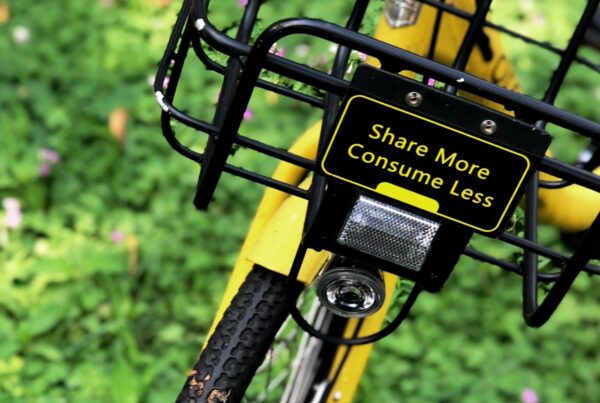Welcome to the Shared-Use Mobility Center’s weekly guide to the most impactful news, thought-provoking articles and innovative technologies that are shaping our transportation future. We believe in sharing information, just like sharing cars, bikes, and scooters, so if there’s anything additional you’d like to see, just drop us a line.
SUMC News
SUMC will co-manage the California Air Resources Board (CARB)’s “Clean Mobility Options” program, with $17M in funding for shared + electric pilots in low-income communities across CA.
“We’re honored to be a part of this initiative and apply our learning to helping disadvantaged communities access jobs and improve their quality of life while combating climate change”, says SUMC Founder and Executive Director Sharon Feigon, “Clean Mobility Options allows us to expand programs and services that meet our goals of sustainable mobility for all.”
CARB’s award aligns with SUMC’s Shared + Electric Mobility Initiative, a national effort to cut carbon pollution by supporting cities, mobility companies, and utilities in electrifying new mobility services like carsharing and ridesharing, while creating new opportunities for zero-emission modes like bike-sharing, scooter-sharing, and innovative public transit services like demand-responsive transit and mobility service partnerships.
To date, SUMC has worked in partnership with community organizations and the private sector to launch six shared and electric pilot projects in disadvantaged communities across California.
Read More.
Ridehailing and Carpooling
Big news for open data mobility advocates and city planners: Chicago is the first city in the US to publish detailed ridehailing data, acting on Active Trans and the city’s Transportation and Mobility Task Force’s recommendations.
So who exactly are Uber’s competitors? Basically every mobility company in the game. Quartz lists them out.
The University of Washington’s Transportation Data Collective is a data intermediary, helping city officials and mobility companies share data by acting as a neutral third party and maintaining control for better privacy protection.
Sony has launched a new taxi-hailing app in Japan called S.Ride, competing with Uber’s local taxi-hailing service.
Carsharing
Italian leasing and rental company Leasys will be launching a P2P carsharing platform called U Go in the UK, France and Spain in September with plans to cover more EU markets by the end of the year.
PSA Group’s free-floating carsharing service Free2Move has hit 10,000 members in the DC area since launching in October last year.
Buick has unveiled its first EV model, the Velite 6, and will be providing a fleet of 5,000 to Chinese carsharing company EvCARD later this month.
Bikesharing and Micromobility
Lyft, through its bikeshare company Motivate, has pulled thousands of pedal-assist ebikes from New York, DC, and San Francisco citing braking concerns for riders.
After launching in a few European cities last year, Bird has announced plans to expand to 50+ throughout Europe this spring.
How can scooter-sharing companies kick unprofitability and make sense as a viable mobility option? The Verge navigates the challenges (maintenance cost, vandalism) and looks at the big picture.
Check out Better Bike Share’s guest post by African American pro road cyclist Ayesha McGowan and her experience with a number of US bikeshare systems while on the road.
Transit
The US Federal Transit Administration has announced federal funding for 16 new and existing transit projects in the Capital Investment Grants Program to the tune of $1.36 billion.
Durham, NC will be stopping GoTriangle’s shuttle service and piloting a new program called Transit Connect giving subsidized first/last mile Lyft and Uber rides from bus stops for workers in the Research Triangle Park business district.
Oregon Metro awarded $150,000 in grants to four transportation pilot projects for greater Portland, two of which aim to improve public transport connections and increase accessibility for all.
Phoenix is in the middle of major transit growth with its six proposed light-rail projects. All of them are in danger of being stopped as opponents put them back on the ballot this August.
Technology
China is already building dedicated lanes for autonomous vehicles, like this 100-kilometer freeway between Beijing and Xiongan with two of the eight lanes designed for AVs…but is this necessary?
Wait for an EV charge? No way. Juice up without opening an app or using a payment card with EVgo’s new Autocharge technology. One less hurdle to widespread electrification adoption.
Algorithms can only take autonomous vehicle development so far before ethical dilemmas persist, creating an unsafe environment for pedestrians, cyclists, and scooter users. The latest episode of Living Lab Radio looks harder into driverless tech ethics.
Autonomous software company Voyage is testing two Chrysler Pacifica hybrids in The Villages, FL to offer safe, non-driving transportation options to the retirement community.
Urban Sustainability
“Sustainable rural development will not look like sustainable urban development. While urban areas can become more efficient by densifying and linking people to mass transit, sustainable rural development will rely on self-sufficiency and decentralization.” Read more on The Daily Campus.
Congress for the New Urbanism has released its latest issue of ‘Freeways Without Futures’, its report on North America’s 10 most damaging, no good, rotten urban highways.
Austin, TX City Council has unanimously approved the Austin Strategic Mobility Plan, marking the city’s first comprehensive transportation plan.
Should Chicago follow in the footsteps of New York and enact congestion pricing in the urban core? WBEZ’s the Morning Shift talks with Northern Illinois University professor Michael Peddle to find out.
Did someone forward this to you? You can sign up for our newsletter here.



